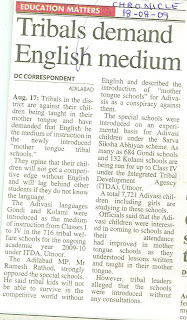[MLE] 2009 Education for All Global Monitoring Report Available
Dear MLE friends, “ The medium of instruction had statistically significant effects: if at least half of schools offer the opportunity to learn in a home language, attendance rises by approximately 10% (Smits et al., 2008).” And some more interesting statements below.

